Well, Here’s What We Think of the Roman Empire
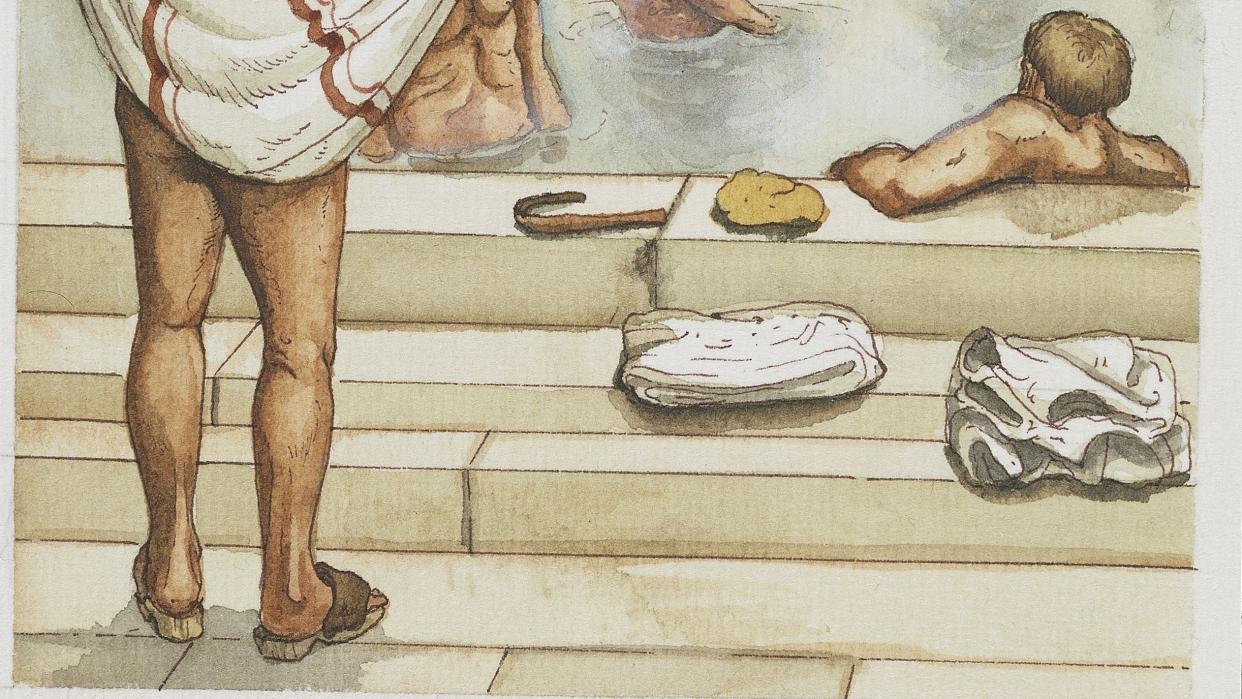
"Hearst Magazines and Yahoo may earn commission or revenue on some items through these links."
If you’ve been on TikTok in the past week, you’ve surely come across the Roman Empire trend, where women ask their male partners how often they think about the ancient society, only for most (cis white) men to admit it actually crosses their minds almost daily. Bizarre, no? Well, actually, experts say it checks out, and may say a lot about anxieties around manhood and masculinity in our allegedly equal society.
Through the years, the Roman Empire has been falsely immortalized in museums and old history books as a great, big, monoracial—specifically “white”—force, despite historians’ having proved its population was as racially diverse as ours. Even the white marble sculptures we associate with classical Roman artistry actually used to be painted in bright, gaudy colors—antique collectors started painting them white in the 18th century. Still, it’s the myth that the society was run by muscly white men in linen robes, iron armor, and strappy sandals that Hollywood and the media have chosen to focus on—the one that reminds us of power in the most patriarchal sense, and even stands as an emblem of white nationalism for neo-Nazi groups like the Proud Boys.
Racist, misogynist alliances like these idolize societies with ancient models of masculinity, a.k.a. the Roman and Greek empires. Larger-than-life mythological male figures, like Hercules and Theseus, who exude strength and blonde power, then, are seen as the models of an ideal leader to an ideal society. War, muscles, Sparta! A disturbing article on the Proud Boys website actually calls Sparta “our ultimate example of a warrior society.” Think that ridiculous horses-and-men montage in the Barbie movie—except not ironically.
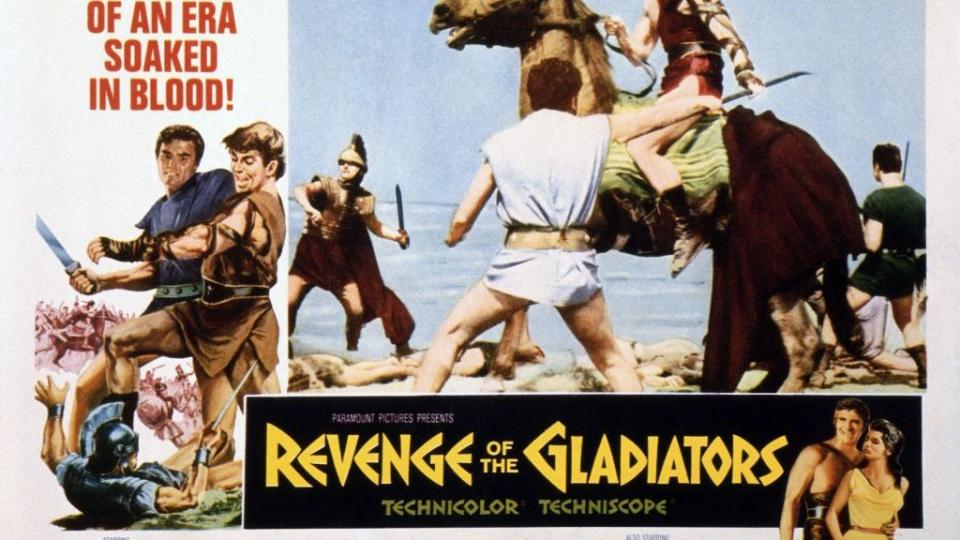
Of course, I am not saying your boyfriend is intentionally supporting these extremist ideals because he sometimes thinks of the Romans, but what gender studies professors, internet culture experts, and historians whom I spoke to can agree on, is that the media targeting your boyfriend is helping keep the patriarchy alive.
“Film, popular culture—see The Gladiator (or Centurion, Ben-Hur, Spartacus), for example—propagate whatever ideal masculinity they chose at the moment, and then dress that in Roman costume,” says Susanna Elm, a professor of history and Ancient Greek and Romans studies at the University of California, Berkeley. She adds that while the actual Roman Empire presented us with many different masculinities—including a complex history of queer identity—it “was patriarchal, so groups who like nostalgic, idealized dreams of a faraway patriarchal ‘paradise’ will sympathize with” and “identify with those they perceive as winners.”
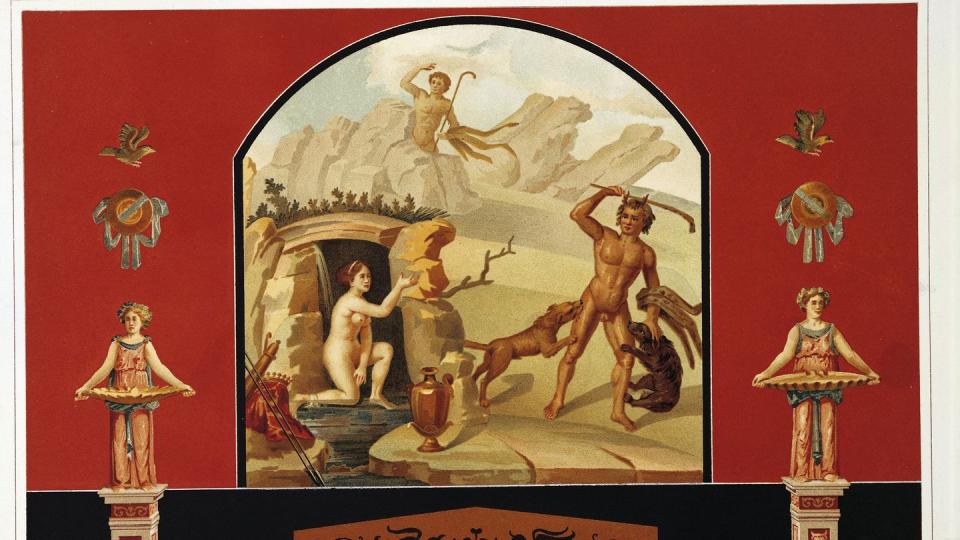
Jamie Cohen, a professional TikTok doom-scroller and professor of media studies at CUNY Queens College, tells me SPQR (Senatus Populusque Romanus) iconography is now more popular in the United States than even in Italy, and has become “coded as nationalist and full of violent pride of a city-state of power full of strong men making empire operate.”
It negates the fact that the majority of Romans were just people doing regular people things, hoping to get by, he says. “The narrative of an all-white, all-male society is highly mythological and perpetuated by far-right groups and rabbit-hole aesthetic accounts like Trad West or Worth Fighting For, which push young men down the ‘traditional values’ rabbit hole by connecting them to an idolized fictional past.”
That big “empire” mentality has carried over into so many things men today—willingly or not—consume.
“I think the market for men leans into the masculine and the strong dude mentality,” Cohen says. “There is absolutely no need for bourbon-scented body wash or brands like Viking or Naked Armor to convince men to wash themselves. Some of today’s media still leans into the perpetuation of the patriarchal society through uplifting far-right coded messages like trad-wives or Andrew Tate–style self-help into mainstream discourse.”
McKenzie Wark, a professor of culture, media, and gender studies at the New School, agrees. “The dominant culture always did [promote a patriarchal society], but increasingly there’s media for men that does not even negotiate with what the place of women in their world is supposed to be. It’s an infantile masculinity that can’t deal with the presence of women as autonomous beings,” she says.
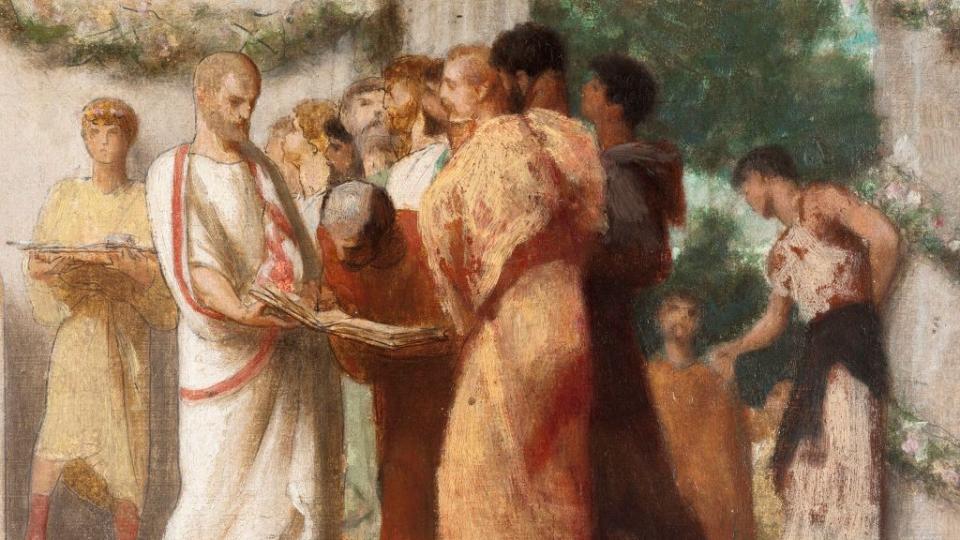
Dangerous myths aside, there is certainly a lot to like about the real Roman Empire: its engineering, infrastructure, architecture, art, aquifers, bridges, plumbing, heating. There’s also a lot to relate to. “This was a long-lasting multiethnic empire, so many are wondering how that functioned. In other words, the Roman Empire stands for an idea of successful management, especially in popular receptions of Stoicism, in management training and so on,” Elm explains. “Then, there is the ever-present notion of Rome’s fall. So, whenever you perceive your own society as being in crisis, then you think: Is this the moment? Are we now also falling? This is more pronounced in the U.S. because it is still a world power, so, like Rome, everyone always thinks it is declining. According to Rome’s historians, from the earliest time onward, Rome was declining, and the decline of the U.S. is also a recurring theme.”
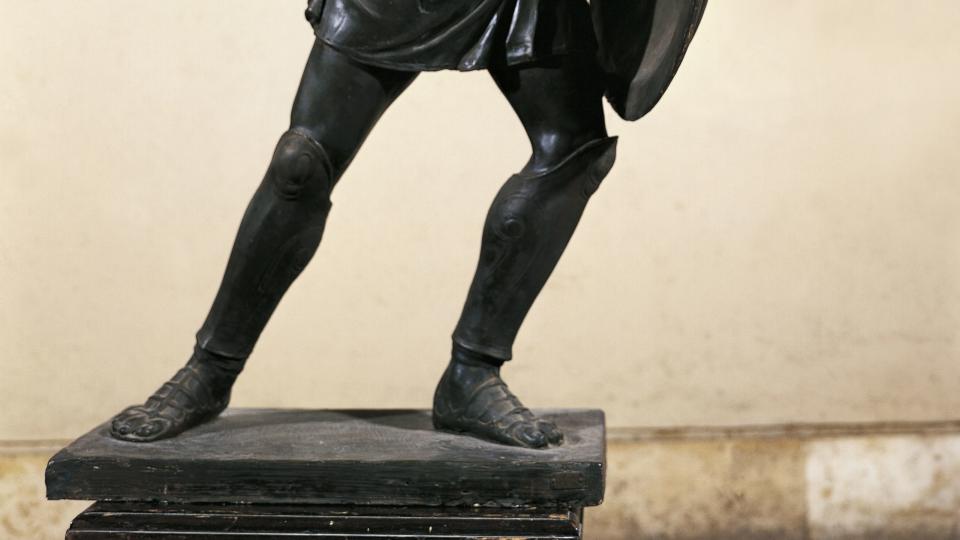
But, Emma Dench—a professor of ancient and modern history and of the classics, and the dean of the school of arts and sciences at Harvard University—says “very few people nowadays come to the Roman Empire through wider education and reading, which would offer a whole range of different perspectives on it,” instead, they think of these “particular associations with power and violence,” which is a much narrower perspective of the empire itself.
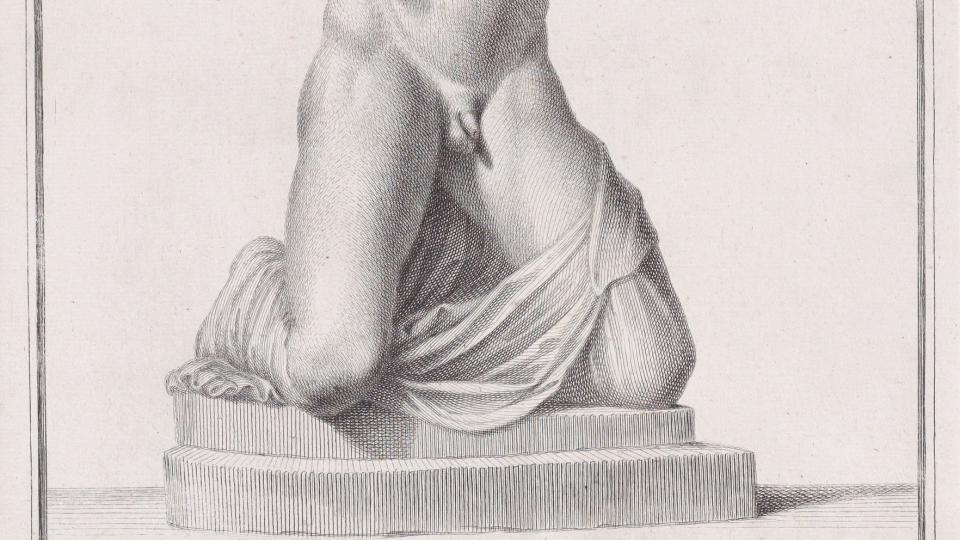
When I ask these experts to consider whether this TikTok trend is subtly problematic or just silly in a dark, inspired-by-reality way, like the failed Kendom takeover in Greta Gerwig’s Barbie, they have some thoughts.
Elm, who is about to publish a book on the queering of Roman masculinity, says it’s just a funny trend. Dench says it might be an issue, but it’s too soon to tell. Cohen says the trend is worth looking at, but at the moment it’s not too scary “because it’s yet to be weaponized.” And Wark says the trend is “patriarchy all the way down.” She adds, “At least Barbie actually used that word, patriarchy, even if the whole movie still had to revolve around Ken’s problems.”
Either way, what can we do but keep on scrolling?
You Might Also Like

